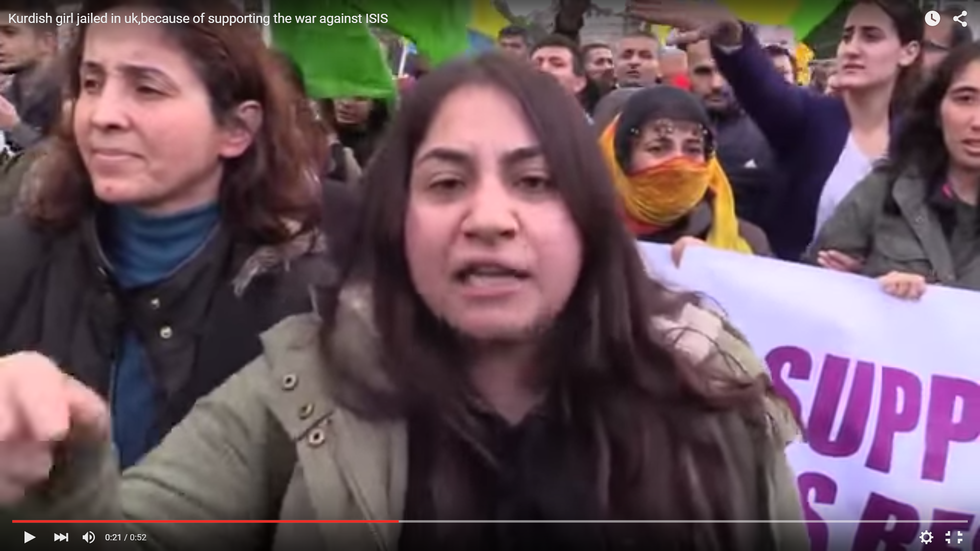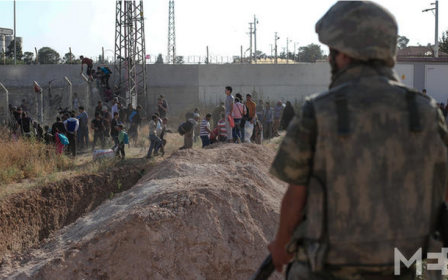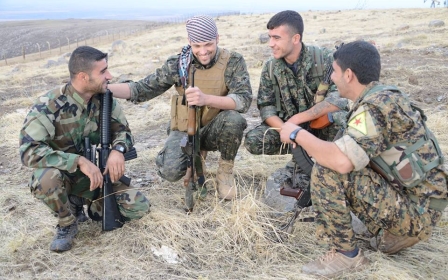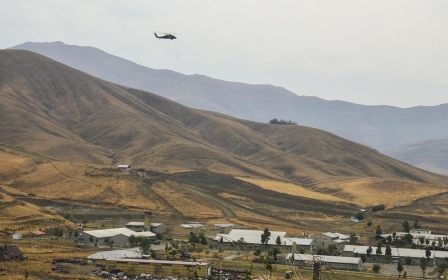First British citizen prosecuted for allegedly joining the PKK appears in court

The case of British teenager Silan Ozcelik, the first citizen believed to be arrested for allegedly trying to join Kurdish militia in their fight against the Islamic State (IS) group, was adjourned on Monday until 16 November.
Ozcelik, an 18-year-old of Kurdish descent from north London, was arrested on 16 January at Stansted Airport when she returned on a flight from Brussels.
Ozcelik was later charged with "engaging in conduct in preparation for giving effect to an intention to commit acts of terrorism," contrary to the 2006 Terrorism Act.
While at least two dozen protesters reportedly stood in front of the courthouse with placards calling for Ozcelik to be released during a pre-trial hearing in April, only her family attended to her trial on Monday.
During Monday's hearing, a judge refused to grant her bail for a second time.
It is not clear why Ozcelik travelled to Brussels, a story that is likely to unfold during her trial.
Her supporters have suggested that she travelled there in an attempt to join the Women’s Protection Units, also known as YPJ, an armed women's Kurdish militia affiliated with the Kurdistan Workers' Party (PKK).
The YPJ is based in Rojava, the name Syrian Kurds have given to areas in northern Syria where they have wrested control since the Syrian civil war began.
While group's affiliate PKK has been proscribed by the Turkish, US and British governments as a terrorist organisation, neither the men's militia YPG nor the YPJ have been listed as terrorist groups.
Ozcelik's supporters have pointed out that the YPG and the YPJ “have received praise from activists and senior politicians alike for their incredible efforts fighting back [IS] from Kobane and parts of northern Syria and Iraq", reported the Guardian.
In July, three British and US volunteers who joined had returned from fighting with YPG against the Islamic State, were cheered on as heroes at the north London Kurdish Community Centre. They described their experience as fighters with the militia in a public gathering.
None of the British volunteers have faced criminal prosecution and Ozcelik’s arrest has been met with outrage by the Kurdish community in the UK.
A statement issued by Peace in Kurdistan Campaign on Sunday said the Kurdish community condemns Ozcelik’s charge “as a blatant example of selective and political criminalisation of the Kurdish community, which has continued since the PKK was listed as a ‘terrorist organisation’ in 2000”.
Though numerous countries have passed laws to prevent their citizens travelling to fight with IS in Syria and Iraq, the same scrutiny has not been applied to volunteers in other militant groups.
The UK Home Office, in particular, has specified that there would be different approaches to dealing with volunteers for non-IS groups.
“UK law makes provisions to deal with different conflicts in different ways – fighting in a foreign war is not automatically an offence but will depend on the nature of the conflict and the individual’s own activities,” it has said.
New MEE newsletter: Jerusalem Dispatch
Sign up to get the latest insights and analysis on Israel-Palestine, alongside Turkey Unpacked and other MEE newsletters
Middle East Eye delivers independent and unrivalled coverage and analysis of the Middle East, North Africa and beyond. To learn more about republishing this content and the associated fees, please fill out this form. More about MEE can be found here.




